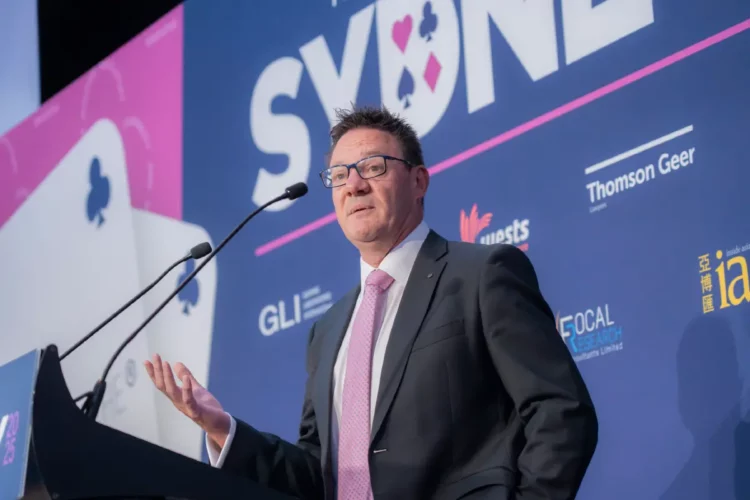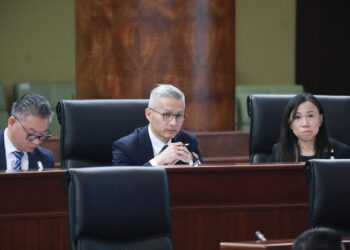The former head of the Australian Criminal Intelligence Commission (ACIC) has issued a warning against excessive regulation and taxation of the country’s gambling industry due to mounting evidence that players are being increasingly driven to illegal operators.
Speaking at the Regulating the Game conference in Sydney on Tuesday, Michael Phelan – who served as CEO of the ACIC for five years between 2017 and 2022 – said it was becoming increasingly apparent that heavy regulation of the casino industry and greater taxation of online gaming operators was negatively impacting both operators and players, opening the door for organized crime or illegal offshore offerings to fill the void.
“The issue is that if the market or taxation gets to a point beyond the equilibrium – if you get to a point where you tax the industry so much and you overregulate – then people will look to other markets to go to and we’ve seen that happen in [the Australian tobacco] industry where regulation falls off a cliff and you have zero visibility,” he said.
“When costs become too high, people will look for another market.”
Phelan said his experience with the ACIC had taught him that law enforcement agencies need visibility of the gambling sector in order to be effective against organized crime – be they domestic outfits or the foreign-based junkets who previously became well-established within Australia’s land-based casinos – and called for greater collaboration between industry stakeholders to ensure the conditions are in place to ensure operators remain viable long-term.
 “The thing when it comes to regulation is you’ve got to be able to see it,” he explained.
“The thing when it comes to regulation is you’ve got to be able to see it,” he explained.
“If we know who is doing what, regardless of what they do, we’ll find out, and that’s the beauty of intelligence – of working closely with the private sector and the government sector – is visibility. You must have visibility of the sector for any of us in law enforcement to help to drive down the AU$64 billion worth of money that has to be laundered in this country every year.
“I have zero visibility on any of that if it’s done in a warehouse that’s been hired for a week to run a casino or if the exchange of money is done in a McDonald’s carpark which is what happens when you bet with an offshore site. All that leads to an environment that is not healthy.
“One of the ways to get rid of the risk is for everybody – governments and regulators and operators – to get together and work out what the happy equilibrium is. What is a sustainable level of gambling in this country?
“When you take away the crooks, the junkets, the [problem] gamblers, what’s left and what sort of market conditions do you have to have to make these operators viable so that people don’t move to online gambling and elsewhere? It’s about making the market viable because without the market being viable, we don’t have any visibility and we don’t see what’s going on.
“With bookmaking, it has to stay [onshore] so that from a law enforcement point of view we have some visibility on that and don’t force people to go offshore.
“With casinos, maybe it’s time for governments to relook at how much revenue they expect to get from casinos [so they] make them viable, because if there are any gaps, those gaps are likely to be filled by organized crime.”
Phelan’s comments come as one of Australia’s largest casino operators, Star Entertainment Group, teeters on the brink of collapse – in part due to rising regulatory costs and a sharp decline in player volumes as a result of the implementation of mandatory carded play and other measures that have not been applied to the thriving pubs and clubs industry.
The former ACIC head likened the situation to the country’s growing “tobacco wars” where the massive excises now applied to tobacco products has seen organized crime groups flood the market with illegal products.
“We’ve already seen [illegal] poker games opening up in Victoria, and Victoria Police have made a couple of arrests in relation to that,” Phelan continued.
“It’s out there and it’s being run by criminals. These are the people that will fill the void – the same people that are burning tobacco shops and doing drive by shootings in southwest Sydney. They have no moral compass and they don’t care what the collateral damage is.
“Regulators need to understand and take note of the commercial aspects of the business that we’re seeking to regulate and one of the keys is to actually know the market really, really well – to understand the consequences of taking certain actions and be careful of that.
“We’ve seen some of Australia’s largest professional gamblers in recent years move offshore, either to the Hong Kong market or somewhere else.
“So, the question for regulators is where is the point at which you get to keep them in the Australian market and when they get to go?
“Eventually there is a tipping point where people leave the legitimate market and go for the unlawful market with all the inherent risks that exist with that.”



































